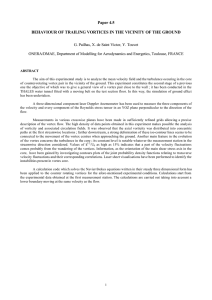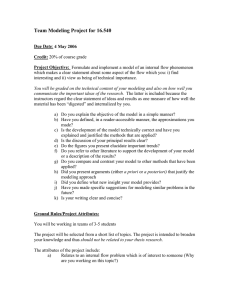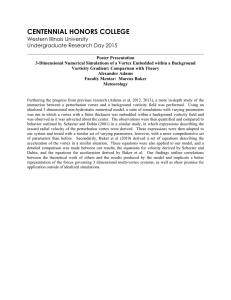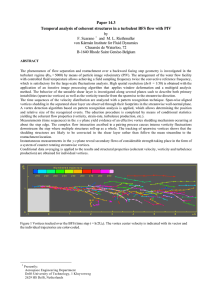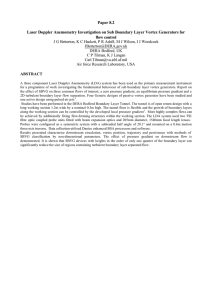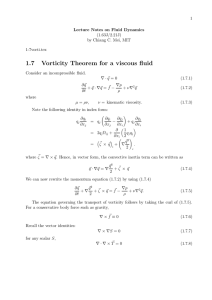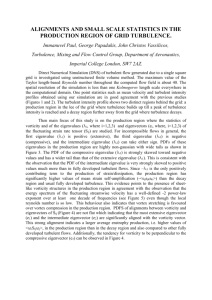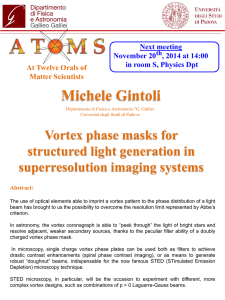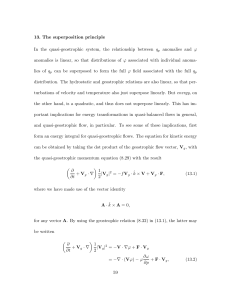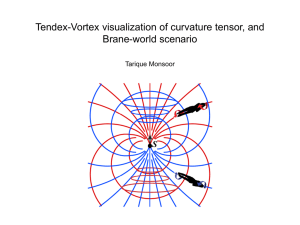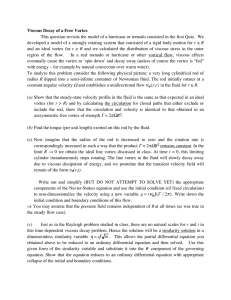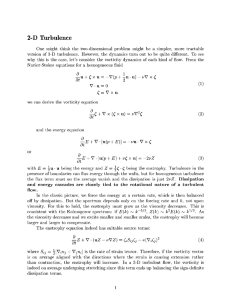Paper 27.1 Near-wall investigation of a streamwise vortex pair
advertisement
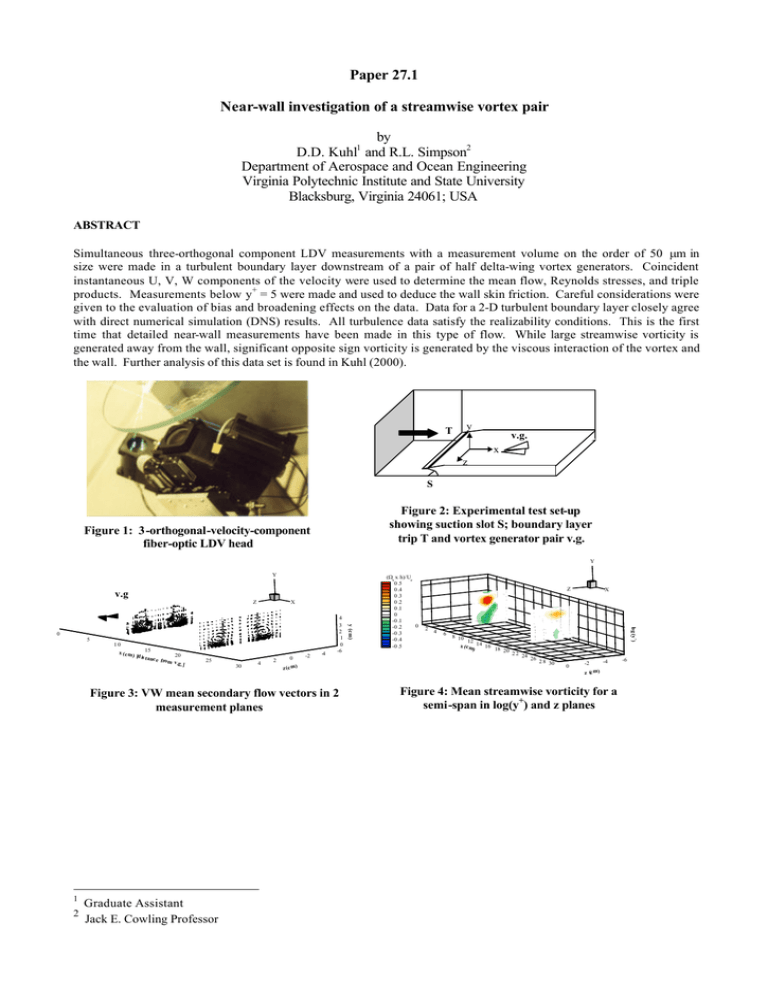
Paper 27.1 Near-wall investigation of a streamwise vortex pair by D.D. Kuhl and R.L. Simpson2 Department of Aerospace and Ocean Engineering Virginia Polytechnic Institute and State University Blacksburg, Virginia 24061; USA 1 ABSTRACT Simultaneous three-orthogonal component LDV measurements with a measurement volume on the order of 50 µm in size were made in a turbulent boundary layer downstream of a pair of half delta-wing vortex generators. Coincident instantaneous U, V, W components of the velocity were used to determine the mean flow, Reynolds stresses, and triple products. Measurements below y+ = 5 were made and used to deduce the wall skin friction. Careful considerations were given to the evaluation of bias and broadening effects on the data. Data for a 2-D turbulent boundary layer closely agree with direct numerical simulation (DNS) results. All turbulence data satisfy the realizability conditions. This is the first time that detailed near-wall measurements have been made in this type of flow. While large streamwise vorticity is generated away from the wall, significant opposite sign vorticity is generated by the viscous interaction of the vortex and the wall. Further analysis of this data set is found in Kuhl (2000). T y v.g. x z S Figure 2: Experimental test set-up showing suction slot S; boundary layer trip T and vortex generator pair v.g. Figure 1: 3-orthogonal-velocity-component fiber-optic LDV head Y Y v.g Z X 10 x (cm ) 15 20 [d is ta nc e fro m v.g .] 25 30 4 2 -2 0 z (c m -4 ) Figure 3: VW mean secondary flow vectors in 2 measurement planes 1 2 Graduate Assistant Jack E. Cowling Professor Z 2 4 6 8 10 12 x (c m 14 16 ) 18 20 2 2 24 26 2 8 30 X log (y+ ) 5 4 3 2 1 0 -6 y (cm) 0 (Ωx x h)/Ue 0 .5 0 .4 0 .3 0 .2 0 .1 0 -0 .1 0 -0 .2 -0 .3 -0 .4 -0 .5 0 -2 -4 z (c m) Figure 4: Mean streamwise vorticity for a semi-span in log(y+) and z planes -6
